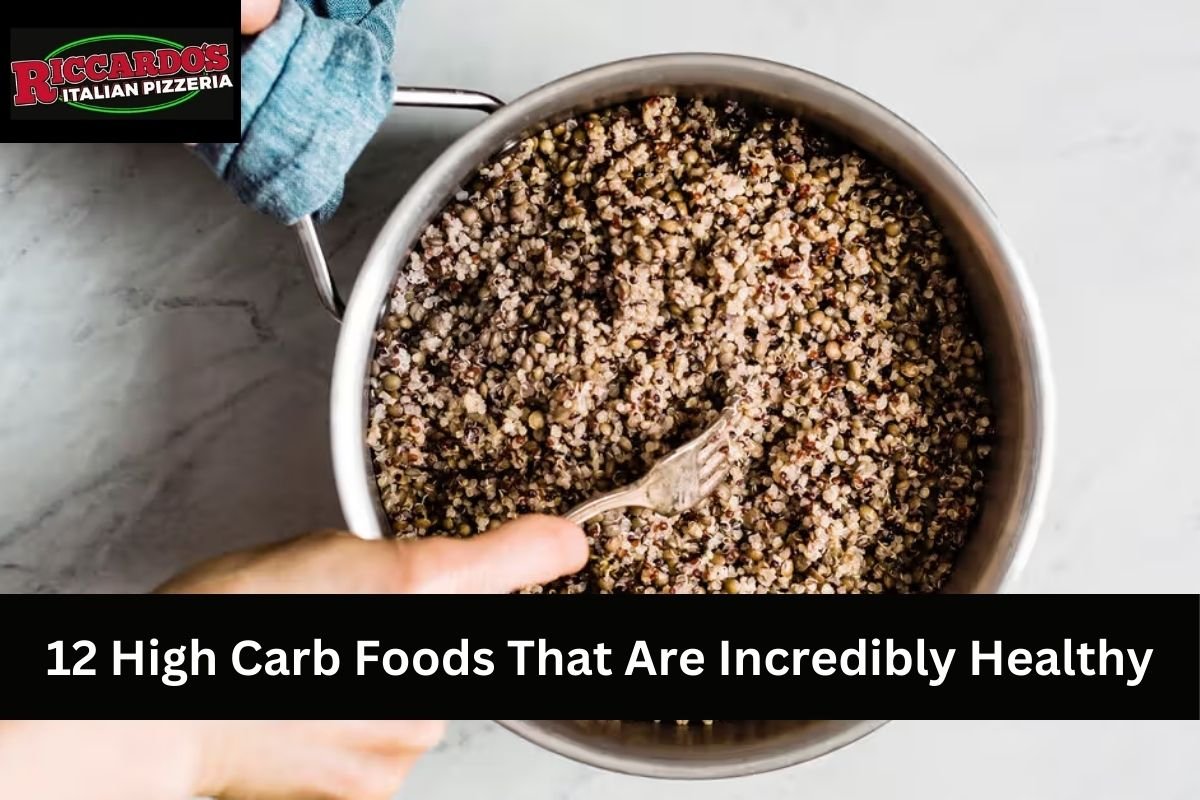12 High Carb Foods That Are Incredibly Healthy :- Particularly in the realm of diet culture, where low-carb and ketogenic diets are extremely popular, carbohydrates are frequently given a poor reputation. Nevertheless, carbohydrates are an important source of both energy and nutrients that are necessary for the body. Here are twelve foods that are high in carbohydrates but are really healthy:
12 High Carb Foods That Are Incredibly Healthy
Especially in the arena of diet culture, where low-carb and ketogenic diets are increasingly popular, carbohydrates are typically given a terrible reputation. This is especially true in the context of diet culture. In spite of this, carbohydrates are an essential source of both the energy and nutrients that the body requires in order to function properly.
Also Read :- Zabaglione Recipe Learn like a Chef
To begin, sweet potatoes:
As a source of complex carbs, fibre, vitamins, and minerals, sweet potatoes provide an abundant supply of these nutrients. These foods offer a gradual and consistent release of energy, which contributes to the maintenance of stable levels of blood sugar. Moreover, they contain a large amount of beta-carotene, which is an antioxidant that is beneficial to the health of the eyes.
Oats (grain)
When it comes to grains, oats are among the healthiest available. They are whole grains that include a substantial quantity of fibre, particularly beta-glucan, which contributes to a reduction in cholesterol levels and an improvement in the healthy functioning of the heart. Additionally, oats are a source of antioxidants, minerals, and vitamins.
Third, Quinoa:
One of the few plant foods that has all nine essential amino acids, quinoa is a pseudocereal that is abundant in protein and is one of the few plant foods that it contains. It also has a high concentration of vitamin E, magnesium, iron, potassium, calcium, and phosphorus, as well as fibre and B vitamins. Given that quinoa does not contain gluten, it is a fantastic option for individuals who are unable to consume gluten.
Bananas fourth:
Naturally occurring sugars and fibre can be obtained from bananas in a rapid and simple manner. It is necessary for the health of the heart and the normal functioning of the muscles that they include a high amount of potassium. There are also a number of antioxidants, vitamin B6, and vitamin C that can be found in bananas.
Legumes:
In addition to being rich in carbs, legumes, which include chickpeas, lentils, and beans, are also rich in protein. They are a wonderful source of dietary fibre, which contributes to the maintenance of digestive health and supplies a sensation of fullness that lasts for a longer period of time. Additionally, they are a rich source of a wide range of vitamins and minerals, including folate, magnesium, and iron.
The Rice, Brown:
The bran and germ that are removed from white rice are preserved in brown rice, which is more of a whole grain than white rice. As a result, brown rice contains a greater quantity of fibre, vitamins, and minerals. Manganese, selenium, magnesium, and B vitamins are all found in high concentrations in this food. Brown rice is beneficial to the health of the heart and assists in the management of weight.
Berries (plural):
There is a high concentration of carbs in berries including strawberries, blueberries, raspberries, and blackberries. This is primarily owing to the natural sugars and fibre content that these berries have. In addition, they are loaded with many different vitamins, minerals, and antioxidants, such as vitamin C and anthocyanins, both of which have the ability to reduce inflammation.
Bread made with whole grains:
When compared to refined grains, whole grain bread is more nutrient- and fiber-dense since it is created from flour that contains the full grain kernel. In addition to being an excellent source of B vitamins, iron, magnesium, and selenium, it also contains a constant supply of energy.
Red beets:
Beets are an excellent source of carbohydrates and fibre, and they also encompass a variety of essential vitamins and minerals, including folate, manganese, and potassium. They also contain a high concentration of nitrates, which have the ability to enhance blood flow and reduce blood pressure.
Apples:
Apples are a source of carbohydrates that are both easy and healthful. They are a source of fibre, particularly in the skin, which helps with digestion and contributes to the regulation of blood sugar levels among individuals. Additionally, apples are a source of vitamin C and a variety of antioxidants.
The pumpkin:
Pumpkin is a low-calorie food even though it contains a lot of carbohydrates and fibre. It contains a high concentration of antioxidants, potassium, and vitamins A and C. It is possible to use pumpkin into both sweet and savoury meals due to its versatility.
Corn (corn):
Corn is a vegetable that is high in starch and contains a generous amount of carbohydrates as well as fibre. In addition to that, it is a source of a number of different vitamins and minerals, such as the B vitamins, iron, magnesium, and zinc. In addition to lutein and zeaxanthin, maize is a good source of antioxidants, which are beneficial to the health of the eyes.
Conclusion:
Although carbohydrates have been maligned in certain diet communities, they are vital components of a well-balanced diet as they supply energy and numerous other health advantages. The integration of these foods rich in carbohydrates into one’s dietary regimen may enhance general health and wellness by providing a diverse array of nutrients that sustain numerous physiological processes.
